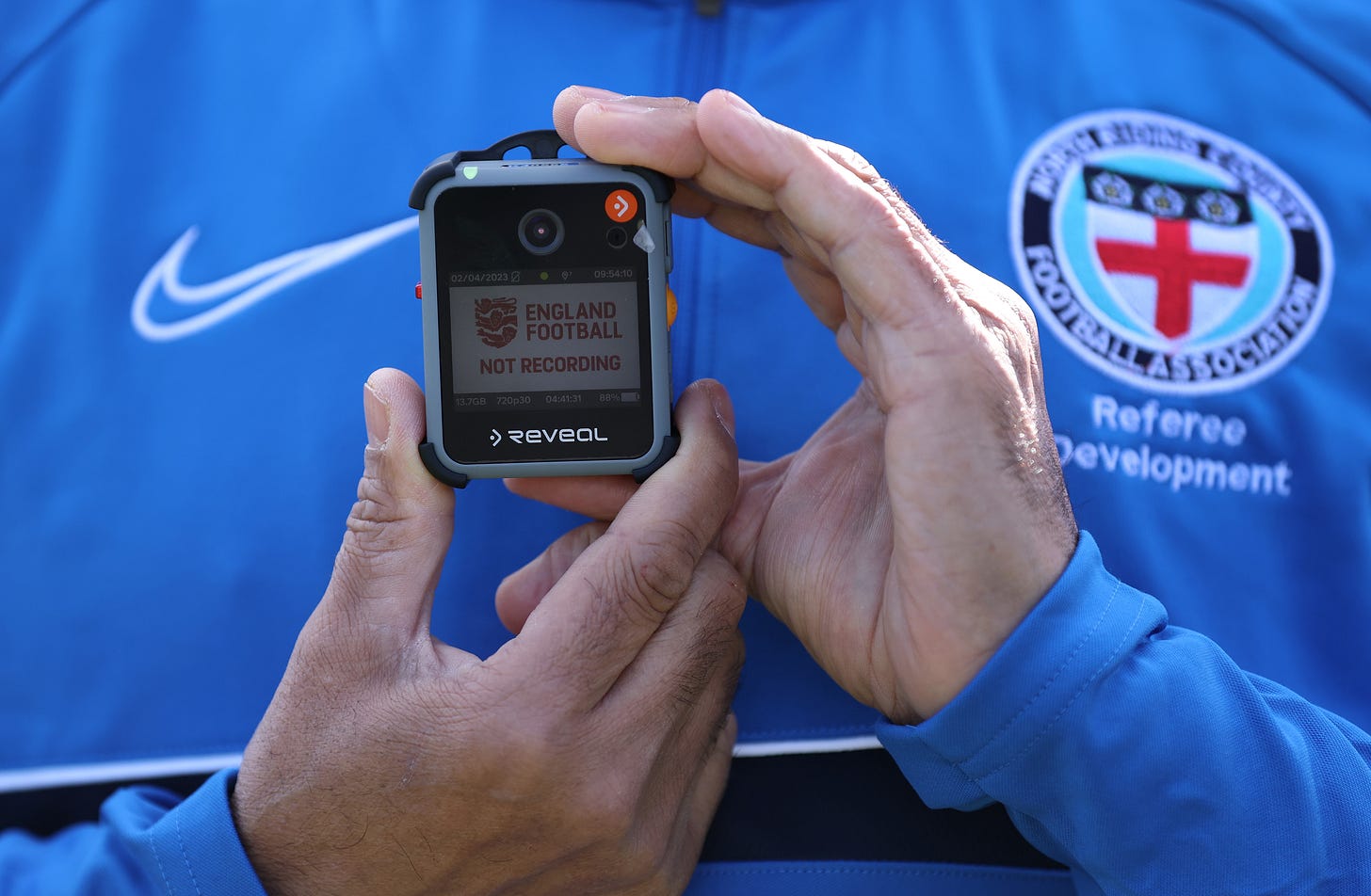Lights, bodycamera, action...
Whistle, cards, magic spray, mic and…. bodycam. Referees’ match-day attire is growing. Refs wearing body-cams is coming closer. They may look unwieldy for the officials to wear but they could soon be making their lives easier. They are being brought in for this summer’s Club World Cup to excite broadcasters, who have not exactly thrown themselves passionately behind the FIFA tournament. But the long-term significance relates to its effect on player behaviour.
Bodycams have been trialled for a while. The Football Association, initially sceptical in 2018, soon embraced the concept. “This is a brilliant development that suggests bodycams will become more common in the game and the FA need to be recognised as huge positive influence in moving this forward,” says Martin Cassidy of refsupportuk, a campaigning charity aimed at supporting and developing officials.
The FA was persuaded of body-cams’ usefulness and began trialling them in grass-roots leagues. The pilot was successful. Dissent and abuse towards referees went down, and now FIFA backs bodycams. “An absolute game changer of a decision that rightly needs recognising across the world,” Cassidy adds. The decision was announced at the IFAB meeting in Belfast at the weekend.
IFAB spoke of “positive feedback from competitions in which referees were permitted to wear body cameras in a limited number of top-level matches so that the footage could be deployed for training and education purposes”. The law-makers “agreed that the successful use of body cameras worn by referees at grass-roots level in England should be further tested and promoted given its positive impact on player behaviour”.
This last bit is key. Giving broadcasters extra content is understandable as they pay the bills. Managers’ half-time team-talks will be streamed live at some point. But the impact on the player-referee dynamic is the most important element to the bodycam development.
Players will think again about remonstrating with the referee knowing that anything they say is being taken down and could be used against them by the relevant national FA disciplinary department. Industrial language is one thing. But directly questioning a referee’s integrity is patently crossing the line. And now players will think twice. Even in the heat of the moment they will have been warned to try and keep their cool. You’re on camera. But there are inevitably concerns.


